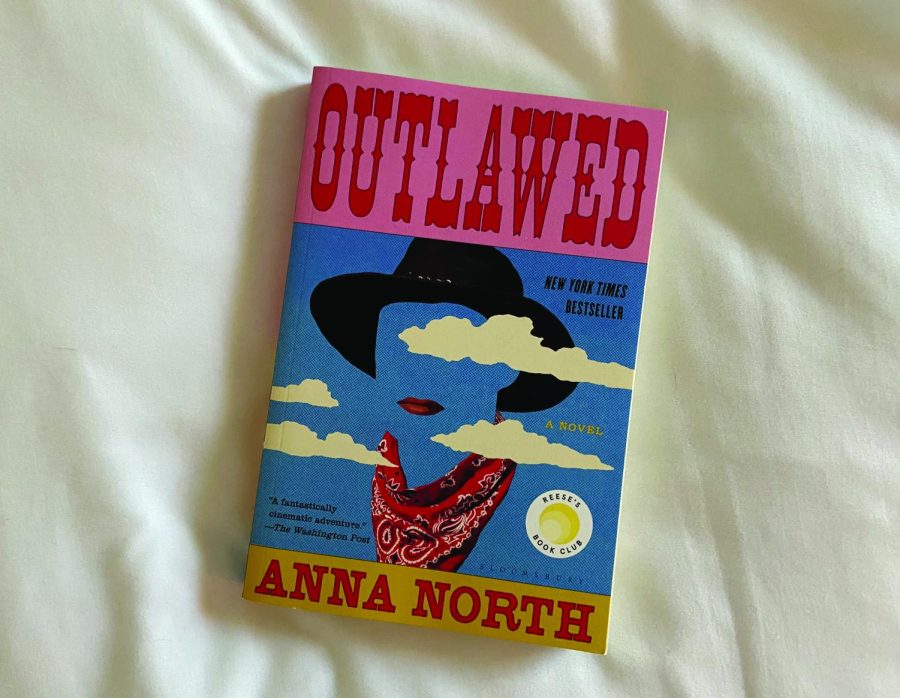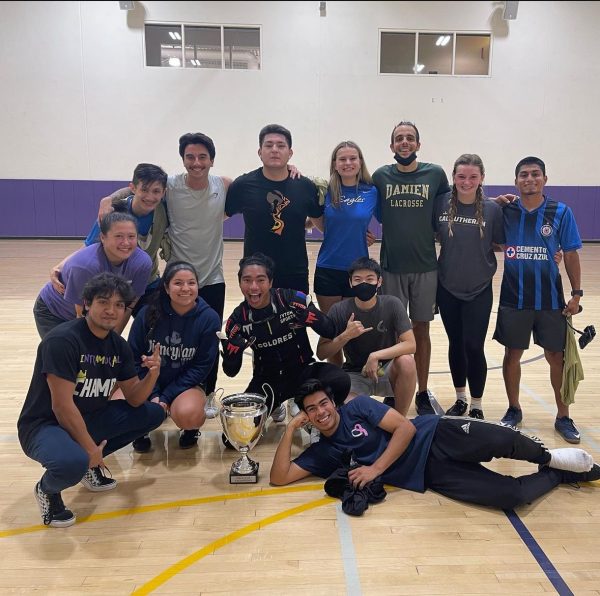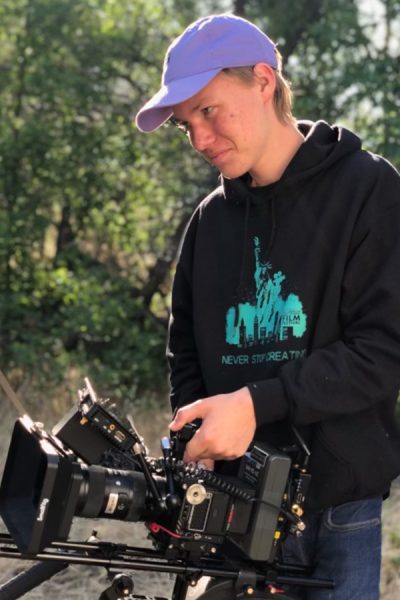‘Outlawed’ by Anna North is a must read novel
Photo by Madison Kosar - Reporter
“Outlawed” by Anna North is a fresh take on a dystopian America set in the 1890s and an instant western classic.
April 26, 2022
“Outlawed” is a fresh take on the western genre, adding a feminist twist to a classic tale of being a fugitive on the run. Even if western fiction novels aren’t your usual pick, I highly recommend giving “Outlawed” by Anna North a try because it’s a unique story, discusses serious issues, and is written by the compelling North.
North is a novelist and a senior correspondent for Vox. There, she writes articles about gender related topics and family life. The topic of gender is threaded through “Outlawed” and prompts the reader to reflect on the cowboy stories they have heard growing up and where women typically fit into it.
The book takes place in a realistic yet fictional America in 1894 where a large part of the population died due to a flu. A woman’s main priority is to help repopulate America but those who are unable to procreate, are hung for witchcraft
After the main character Ada is labeled barren, she has to leave her family and go on the run to avoid persecution. Ada joins a gang whose main goal is to create a safe space for women who are pushed out of society and forced into a life of constantly running
“Outlawed” has all the excitement of a typical western story including gun fights, robberies, death and horses. North is able to create beautiful and powerful western imagery that jumps off the page.
What made me fall in love with this book is the uniqueness of the story. Although the storyline could sound similar to other westerns, it is a rare take on feminism perspective and sexuality that has yet to be seen in western fictional novels.
In an article by Maureen Corrigan, published on NPR’s website, Corrigan writes about the themes of gender and sexuality in “Outlawed.”
“The heroes of the traditional Western were always sure about what made them the way they were; what made a man a man. For Ada and the other ’outlaws’ of this spirited novel, the frontiers of gender and sexuality beckon to be explored,” Corrigan said.
I believe this is why “Outlawed” is a western novel popular to people who don’t typically read them, because it deals with issues like gender roles and being rejected by society.
After an interview with North, I became even more in love with the novel. After our conversation, my opinion about her and the book became even stronger, making me certain that this is going to be a classic.
North said she started writing before she could even do it herself, she had her aunt write while she spoke. When asked what made North want to become a writer, she said it was hard to remember what motivated her in those early years.
“Later on writing became more about making sense of the world. I think it’s how I filter the chaos of experience into something that resembles meaning,” North said.
When she started writing “Outlawed,” North said the original concept of the story came to her after visiting New Hampshire. While she was there, she visited an old Shaker dwelling.
“The Shakers were a religious sect whose members didn’t marry or have children, and I got interested in this idea of people who are outside the sort of family structure that a lot of Americans take for granted,” North said
By incorporating historical elements into a fictional novel, North made me like “Outlawed” even more because it blurred the lines of what is fiction and what is based on American history.
The inspiration for this novel also came from her personal life, she said.
“I was also recently married and thinking about having children, so these ideas of fertility and infertility and reproduction and family formation were on my mind a lot. It was actually only later that the story became a Western,” North said.
Using her personal experience adds to the long list of reasons why this book is so excellent, it creates a strong sense of connection between readers and North.
“Outlawed” is North’s first western book. North is from California, she said she has always been interested in the terrain of the West. While writing the book, she said she thought about the people who live a life separated from society, what that structure would look like or lack of it.
While reading it, the setting doesn’t feel far away from where we are now but North said that she didn’t want the book to be an allegory of America today.
“We very much live in a society that still defines women by whether they are mothers, and at the same time doesn’t always give them a lot of choices in how or when they become mothers, this part of the world of the book is very much true today,” North said.
For aspiring writers, North said she recommends reading and writing whenever you can.
“Find your best time of the day or week or month or year for writing and try to take advantage of that. For some people that’s early morning, for others it’s night after the kids are in bed, for others still it’s on retreats a few times a year,” North said.
Her advice to people who identify as part of a marginalized group is to find your people and North believes it will be helpful for your work.
“Peers who get what you’re trying to do with your work and will support you even when others don’t, and give you constructive feedback without a lens of bias or a desire to make your work into something it’s not,” North said.
But North doesn’t think the responsibility is only on writers to find help, the publishing industry has to contribute as well.
“Especially with respect to writers of color and LGBTQ writers, who have been underrepresented throughout a lot of publishing for decades. A responsibility to pay people equitably and to produce books that reach the full range of American readers, not just a (usually white) segment of them,” North said.
“Outlawed” is a story for everyone and showcases different walks of life. As someone who considers themselves an avid reader, I highly recommend giving “Outlawed” by Anna North a try.











